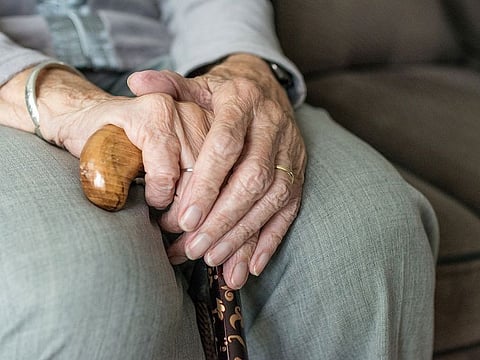Some bonds are worth cherishing for life
Our two families lived in harmony despite the diversity in customs and culture

We reverentially called her Shaikhani Amma. The grand old lady, with her henna-tinted hairdo, clad in an elegant sari, was a guest of honour in our large Hindu joint family.
I am recalling this about 70-year-old scenario because it relates to the communally sensitive city of Aligarh in Uttar Pradesh, India, my place of birth.
Even in a hostile atmosphere, our family nurtured a close relationship with the Shaikh family. Nevertheless, both the families respected each other’s sentiments and age-old reservations. In a way, the two families were close yet distanced from each other.
Also Read: Aberrations in the world of medicine
Also Read: How COVID-19 locked down kids’ growth
Also Read: Finding humour even in shaky times
Our honoured guest squatted majestically on a wooden bed covered with a spotless bedsheet.
Now, it was the turn of all youngsters to touch her feet as per Hindu tradition of paying obeisance and she appropriately blessed them all. Being summertime, she was served sherbet in an artistically-crafted silver tumbler and snacks in an equally beautiful silver plate.
Pangs of partition
Those days, India was going through the pangs of partition. As a 10-11 year old, I had witnessed the turmoil. Asked about the special treatment to her, my mother told me that Shaikhani Amma was a special Muslim guest of our Hindu family. I do not remember much but from whatever I had heard, she was born a Hindu who got married in the wealthy Shaikh family. I had often visited their sprawling house in the locality known as Afghanaan. A road virtually divides the area populated by the two predominant communities.
I am told that the Shaikh and our Shaikhani Amma had met my grandparents in a train when the two couples developed an affinity. Amma adopted my grandfather as her brother and he gracefully accepted her as his sister. The bonds became stronger.
My uncle and father addressed her as “Bua” (aunt), who reciprocated their affection. She would invariably come to ceremonies at our place. However, I continued to be curious about the silver tumbler and the similar silver plate in which she was served edibles and nibbles.
One day, I learnt that the silverware denoted respect for her as also satisfied the sentiments and reservations someone in the family might be having.
Fresh in my mind
And what happened when our grandmother visited her “sister-in-law’s” place? Amma would send a message to a Hindu sweet shop nearby to deliver some snacks himself, not through her Muslim servants. She was a paan (betel-leaf) lover but she could not have offered one to my grandmother, so one of her maids would bring the wrapped paan, dangling from a thread, so that it remained untouched by her hand. That strange sight is fresh in my mind even today.
Shaikhani Amma would often ask for some special vegetarian dishes prepared by her “Bhabhi”, my grandmother. I would carry the stuff in a basket and return happily with a One Rupee coin of the 1940s that she would give me. I was told that there being no banks or lockers, those coins in her haveli (mansion) were kept mixed with sand in the strong room so that one could not easily steal them.
Sometime before her demise, the grand old lady handed to my mother a piece of jewellery to be gifted to my wife. Amma had left us but at the time of my marriage, my better-half wore it as a memento from that amazing lady.
I may emphasise that this was happening in Aligarh, which had been notoriously known for frequent turbulence. Even today, the joke continues that you just have to shout ‘danga’ (riot) in a market and in seconds shops would down shutters.
But happily, our two families lived in harmony despite the diversity in customs and culture, irrespective of whatever was happening elsewhere in the city.
— Lalit Raizada is a journalist based in India.



